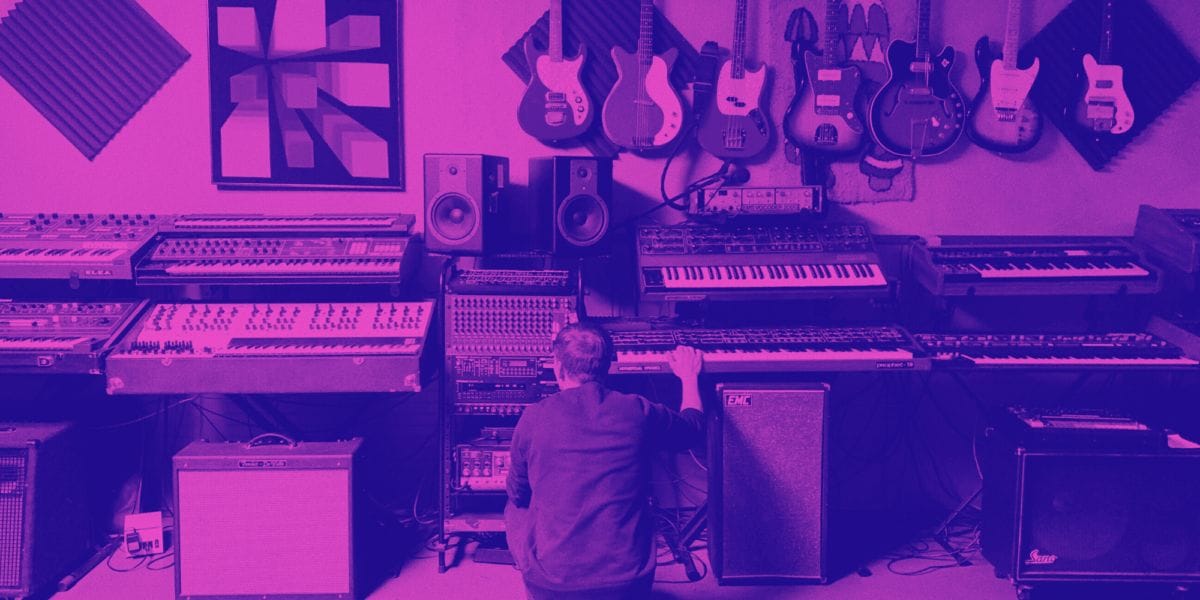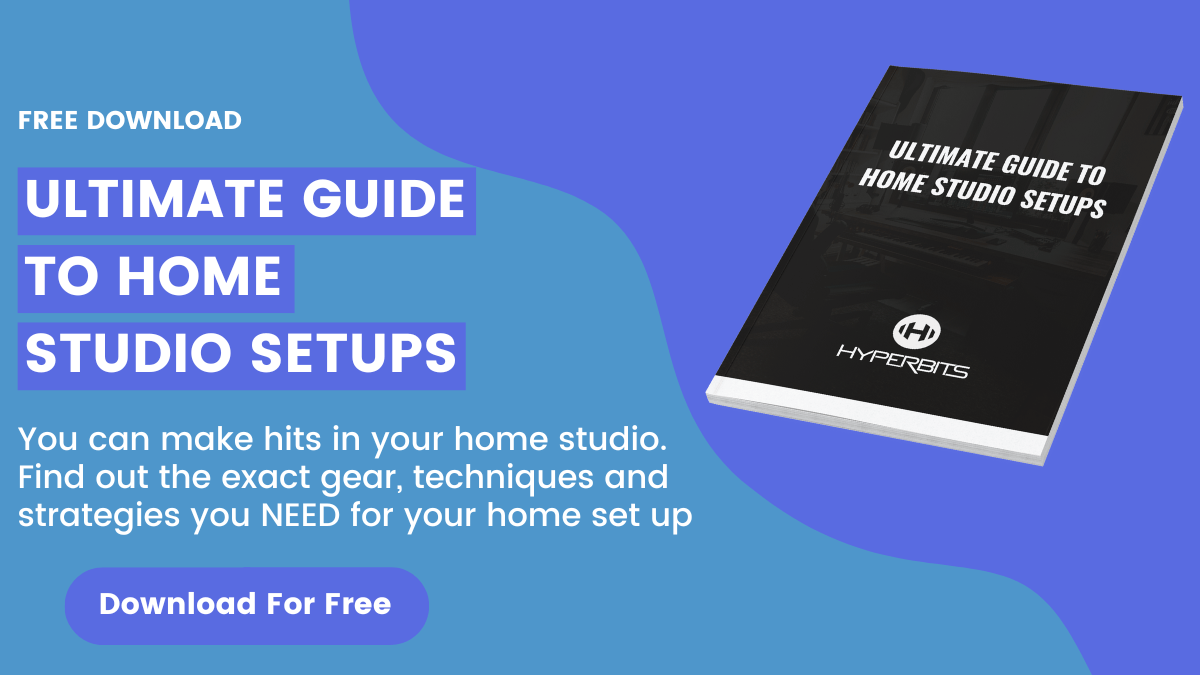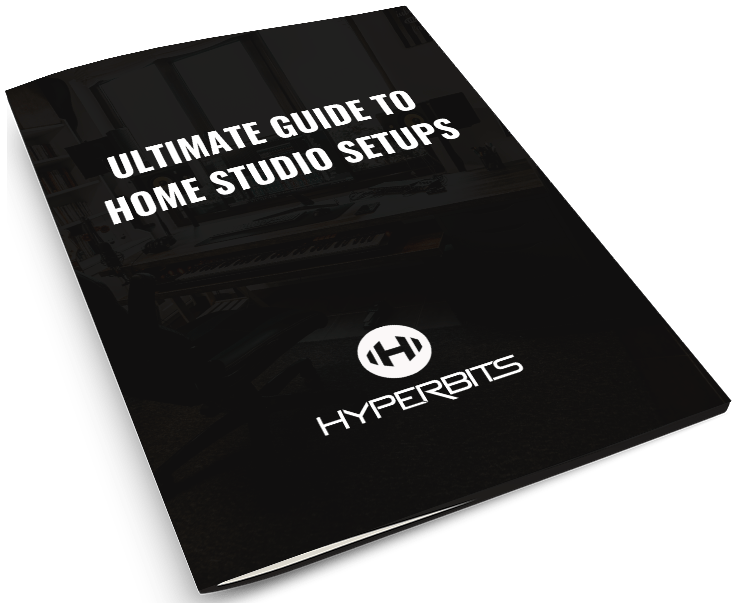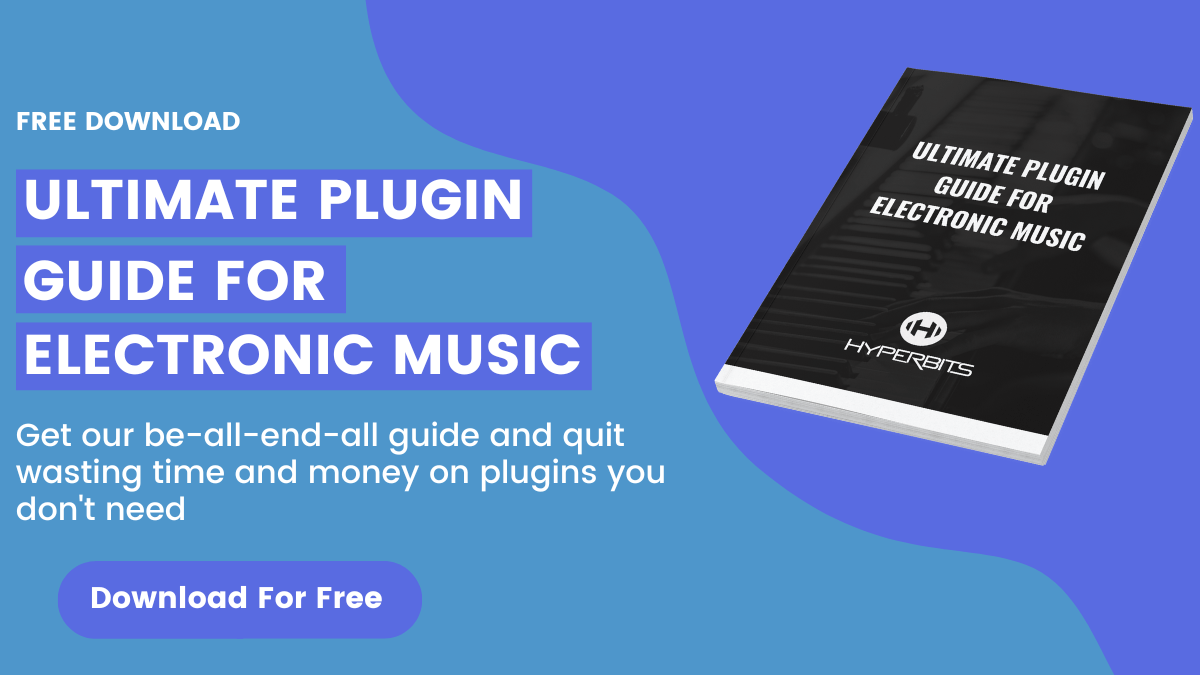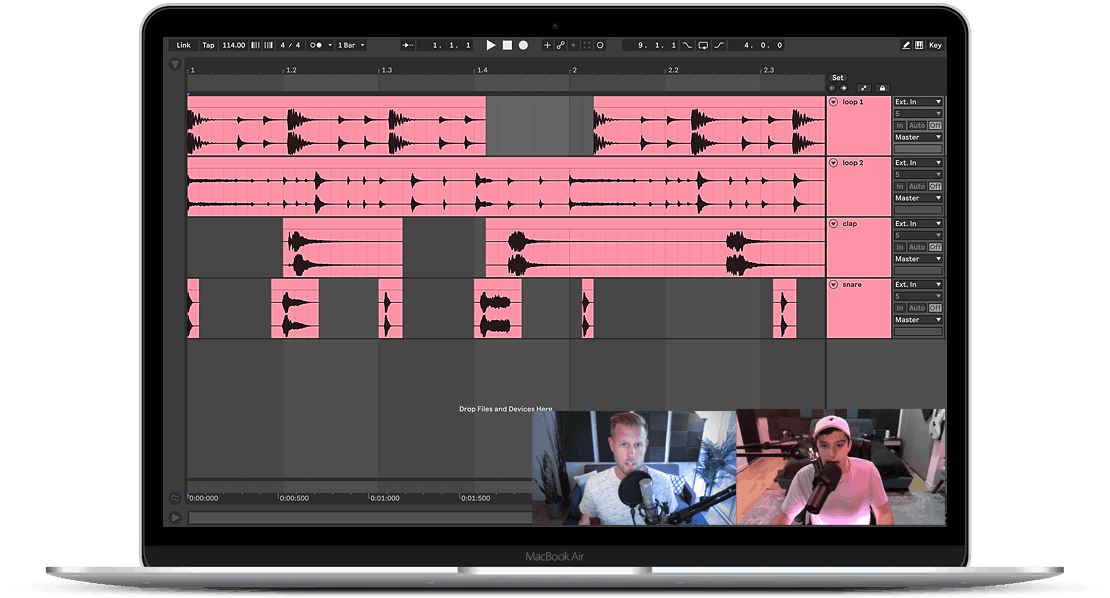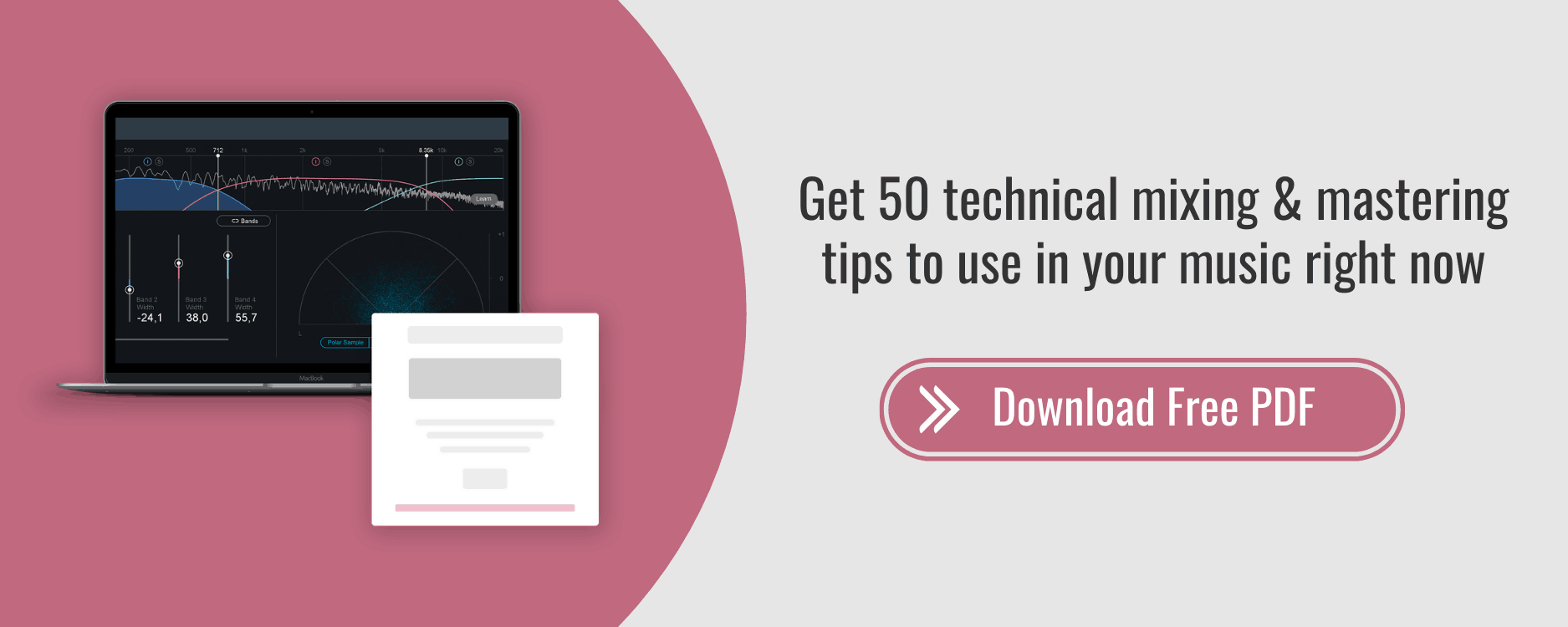Top 8 Entry Level Hardware Synths
"We live in a digital world, but we're fairly analog creatures."
— Omar Ahmad (author and activist)
Ohh, the analog vs digital debate!
Hardware synths have their merits, but software synths today are often more powerful than the original units that inspired them. But there are a few good reasons why a producer might want to shell out for hardware synths.
Let me start by saying one thing: You do not need an hardware synths to make music. Life is too short to live in a state of constant acquisition bias.
When you use and enjoy what you have, you are already well ahead of the complainers. If you find yourself pointing to the plug-ins, sounds, or instruments that you don’t have as the reason why you’re not making music, it’s probably a sign that you’re avoiding something (like writing).
If you’re at the stage in your production journey where you’ve decided that synthesized sounds are a key element of your music, you’ve probably already thought about the world of hardware synths.
For those new to oscillators, waveforms, filters, envelopes, and sequencing, I recommend you get comfortable with a top-tier software synth first. Check out the Ultimate Plugin Guide for recommendations.
Spending time and money getting to know hardware synths inside and out is an investment in your sound, knowledge, and skills as a producer.
Taking the time to learn these concepts before you’re standing in front of that keyboard will pay off when it’s time to get down to composition.
Adding Hardware Synths to Your Productions
The world of digital synth shopping is pretty straightforward. You have the go-to heavy hitters of the day: at this point, Serum and Massive. There are classics like Nexus and Sylenth1. And then there are all sorts of lesser-known favorites and genre-specific synths: Spire, Diva, Omnisphere, FM8, and many more.
But what about hardware synths? There are old and new brands. Prices are all over the board. And on top of that, there’s additional equipment you need to get the most out of a hardware synth, like cables and an audio interface.
It can be a difficult and expensive decision to navigate. We’re going to clear this up once and for all.
Monophonic (Single Voice) Synths
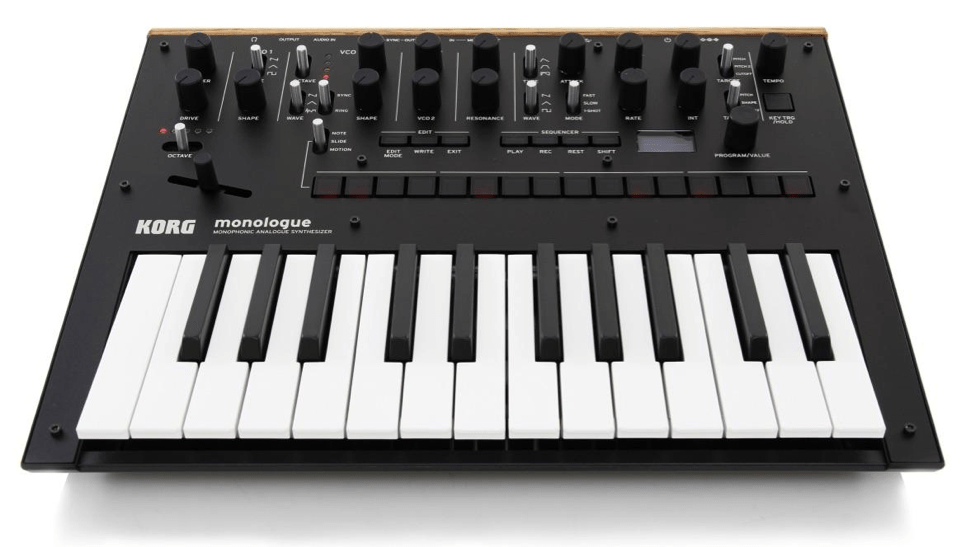
1. Korg Monologue — $299
The intensity that Korg is known for at even more of an affordable price point — that’s what you get with the Monologue. Despite only having 2 oscillators, the Monologue is packed with a 16 step sequencer, the ability to save your own patches, and built-in drive for lush saturations and distortions. Careful though, this is another mono synth, so you won’t be able to play chords.
Pros: Most affordable Korg, true analog circuitry, built-in sequencer
Cons: Somewhat limited design
“Get a Korg Monologue or Minilogue. They are cheap, sound great, and they are simple yet provide a lot of stuff to play with.” - Yotto
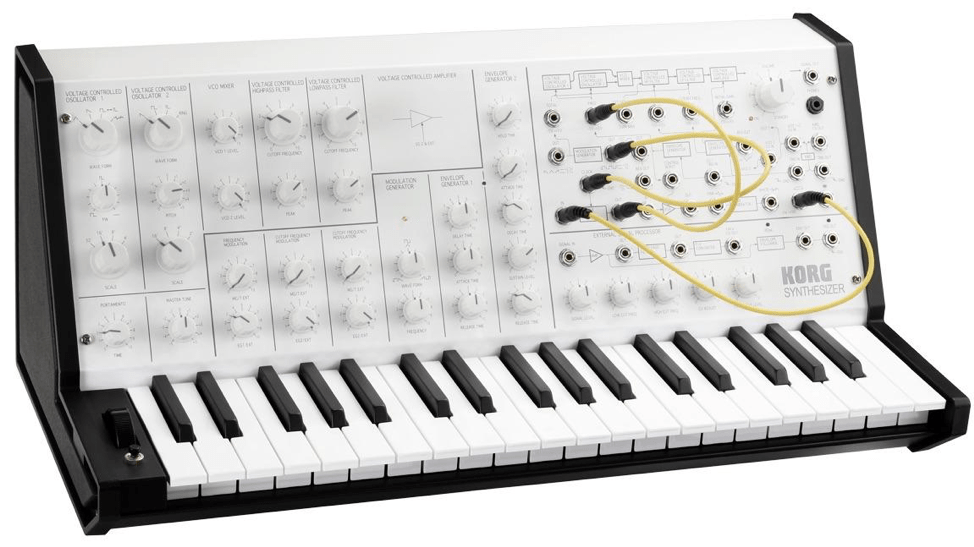
2. Korg MS20-Mini — $459
The MS20-Mini is Korg’s remake of the classic 1970s MS20 synth. The Mini has a nearly identical sound to the original synth which characterized much of the sound of the 80s and 90s and was pivotal in the early days of house and techno music. The MS20-Mini is built with the same analog circuitry as the original, contains infinite sound design possibilities with its semi-modular capabilities, and houses an external signal processor that allows the user to run external audio through the synth filters.
Pros: Versatile sound design, unique modular capabilities, Jon Hopkins loves the MS20
Cons: Higher side of the $0-500 range, mono synth (not really a con, but you’re limited to one note at a time)
“I just like Korg stuff and wanted to try a synth that was the same age as I am. I haven't even delved into the external signal processing element of it yet - keep meaning to, but I love the sound of the raw oscillators so much, I try and bring that to the fore when I'm using it.” - Jon Hopkins
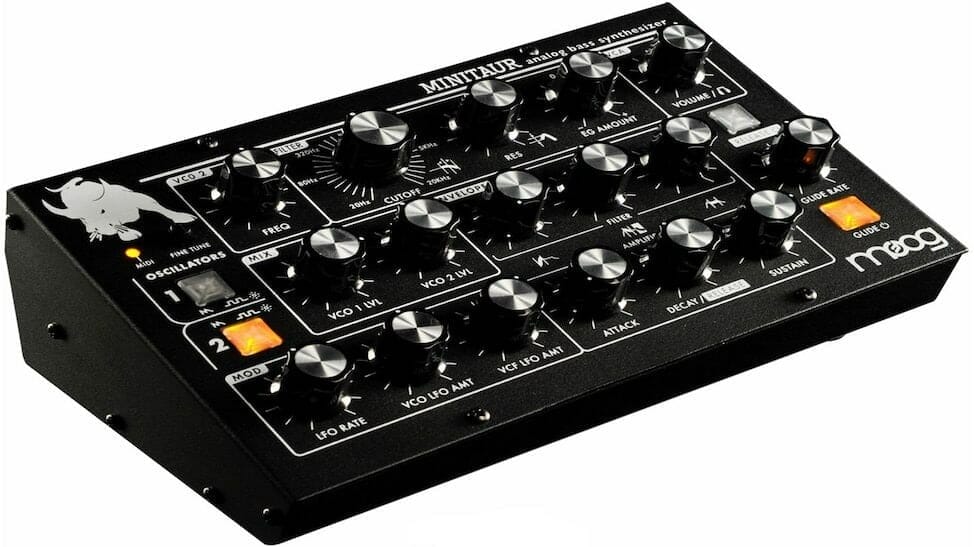
3. Moog Minitaur — $499
If you love deep house, techno, or 80s music, then you love the Moog. The Minitaur is the least expensive way you can get one of those coveted Moog filters in your studio to create rich, sexy bass lines. Careful though, once you get a taste of a Moog, you’ll soon be eyeing their more expensive synths too.
Pros: Arguably the best bass sounds around, USB/MIDI control inputs for easy sequencing
Cons: No build in keyboard, somewhat limited to just bass sounds
“I think lately the Moog Minitaur has really helped with those warm basslines, The Moog has such a unique sound when it comes to bass. I used it on the bassline for “Reach Out” with Bontan that did really well.” - Sonny Fodera
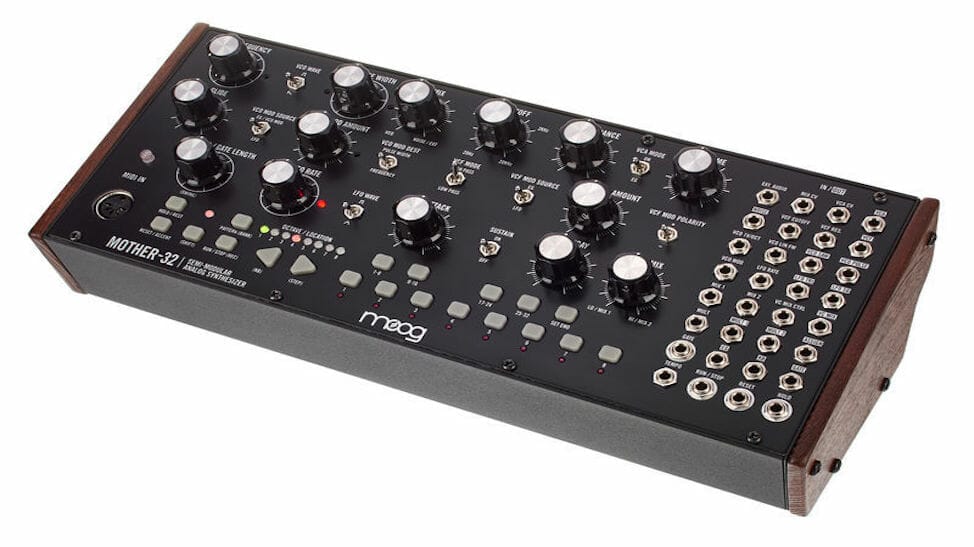
4. Moog Mother-32 — $599
Ok, we’re cheating a bit here and stretching our $500 budget, but it would be tough to write this article without mentioning the Mother-32. It’s a Moog, you have a huge number of sound design options, and it’ll add a vibe to your studio that will make you want to spend time writing music.
Semi-modular, Eurorack compatible, 32 step sequencer, and the sexy Moog filters. Just get one, you’ll be happy you did.
Pros: Access to some coveted Moog sounds, semi-modular and Eurorack compatible
Cons: No internal keyboard, only one VCO
"I keep the Moog Mother-32 in my favorite corner of the studio." - Maceo Plex
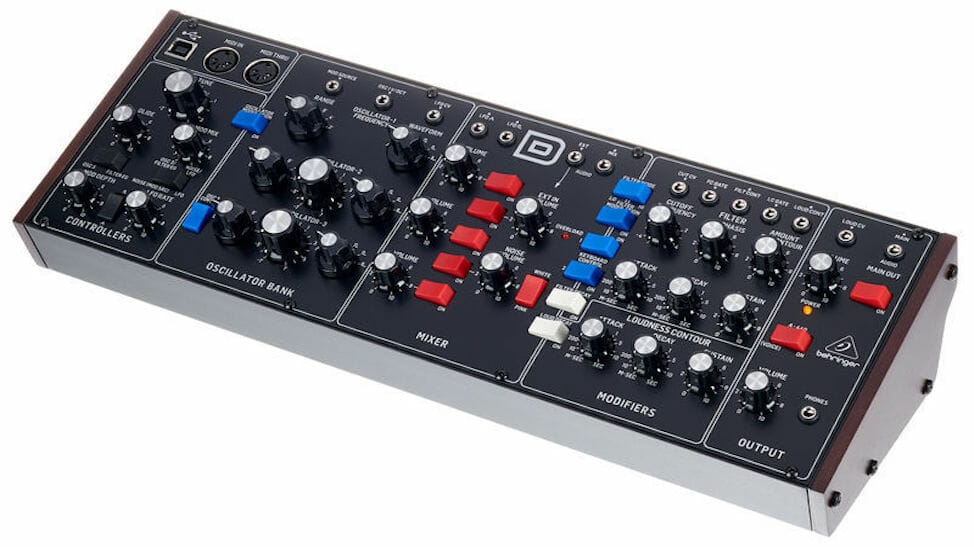
5. Behringer Model D — $299
I’m a bit obsessed with Moog filters. They just sound so damn expensive.
Turns out Moog’s original patents went into the public domain in 2017, and Behringer took the Minimoog Model D design and created the Model D in its likeness.
So, it isn’t a Moog, but it sounds pretty damn close. Combine that with a fun eurorack compatible design and you’ve got a unique studio tool that can make an impact on any track.
Pros: Sounds like a Moog, Eurorack compatible
Cons: No keyboard, not the most reputable manufacturer
“I just feel completely connected to that thing. It’s so responsive. It’s the closest thing I’ve ever found to a guitar in a synthesizer. For whatever reason when I sit down and play those, things just flow.” - Tycho
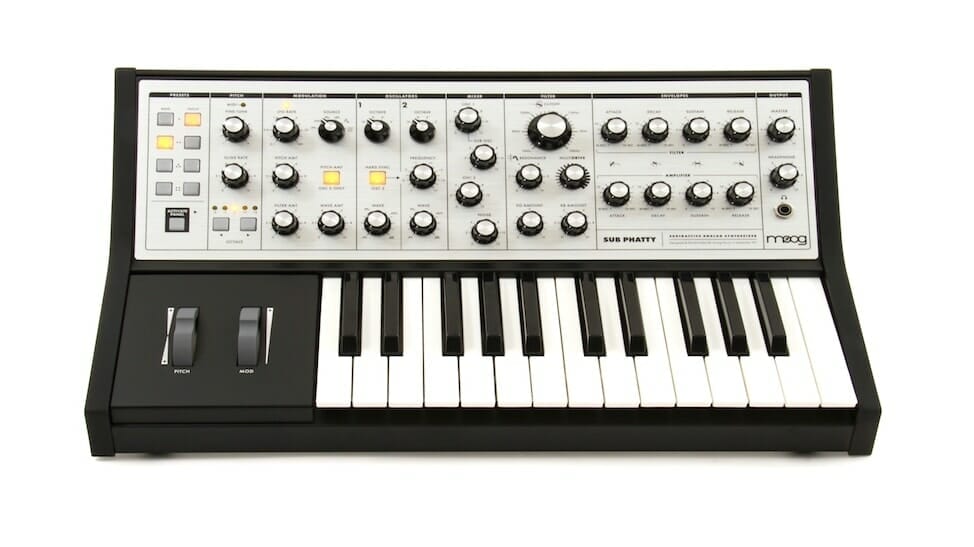
6. Moog Sub Phatty — $679
Alright, it’s well above the $500 limit. This is officially past “entry-level” and into pro-grade equipment that will last you a lifetime. And it may just be the most complete offering around, in terms of sound, flexibility, and just sheer fun of playing and programming. Moog nailed it with the Sub Phatty, and its big brother the sub ‘37. Highly recommended if you’re looking to make the leap.
Drew from the Chainsmokers used this for the bass on Rozes. He says,
“The thing about the Moog analog synthesizers… is that you don’t really understand how much better they are than what comes in the box until you get one...you just have a much stronger signal to play with.” - Drew Taggart
Polyphonic (Multi-Voice) Synths
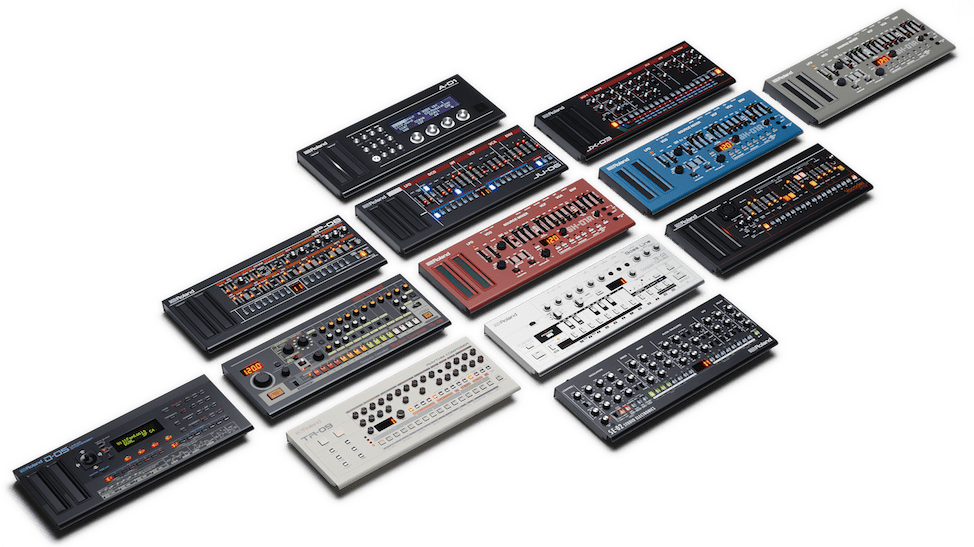
7. Roland Boutique Series — $349
Roland’s robust line of analog gear — and their catchy naming convention — has dominated the world of synthesizers since their inception. The 101, the 303, the 808, the 909 — everyone knows the sounds, and nobody questions how awesome they are.
Unlucky for us, if you want an original piece of any of this gear, it’s going to set you back at least a few thousand dollars. Lucky for us, in 2015, Roland rolled out their new Boutique Series — compact remakes of all their classic gear, all for the flat price of $349.
Want an 808? Get the TR-08. Want a 101? Get the SH-01a. There are versions of the Juno 8, Jupiter 8, VP-330 Vocoder - there seem to be more models available every few months. Pick up the K-25m keyboard for $99 which is compatible with all of them, and you’re as close to the original sound of any of these synths to fool even the most snobby audiophile.
Pros: High-quality classic sounds, many have expanded features from the originals (added voices, unison mode, etc)
Cons: Not true analog synthesis (they are digitally based), they are small and potentially difficult to play live
“I used it on my NERD remix. If I ever want a really good saw sound, this is what I use. It’s fun to trigger it with a drum machine too.” - Boys Noize
8. Korg Minilogue — $519
Do you want the bite, presence, and life of a Korg? Do you want 4-voice polyphony? The Minilogue is your choice. You can store up to 200 of your own sounds or make use of the 100 presets on board.
Throw in the 16 step sequencer and built-in delay and sidechain options, and the Minilogue is a no-brainer. Yes, it’s $519, but you can find deals (or pick it up used) and clock in under $500 fairly easily.
Pros: 4-voice polyphony, totally analog LFOs, VCOs, VCFs, and VCAs
Cons: More expensive than comparable Roland options
“In the studio with this lovely new synth from Korg. It's unreal!” - Dirty South
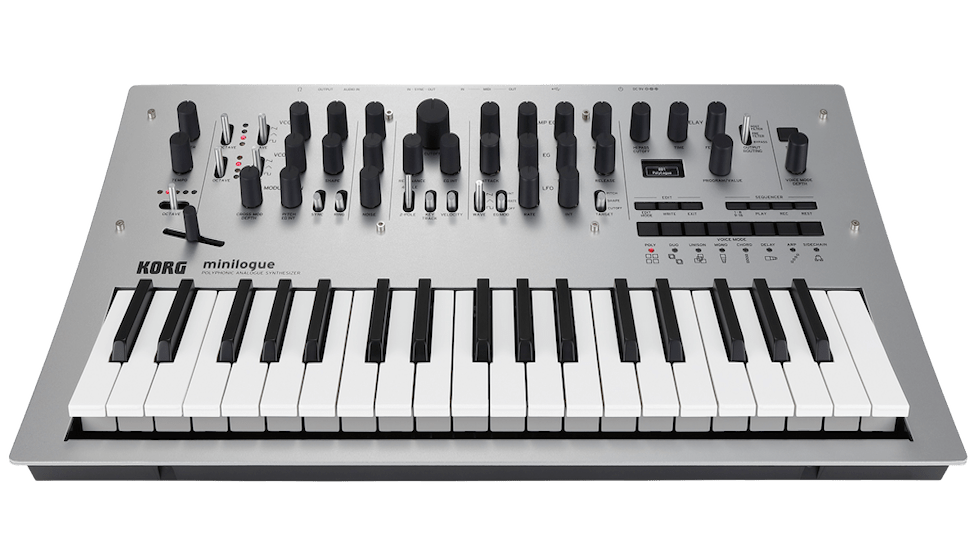
Final Thoughts
Keep in mind that these prices are for brand new hardware synths. You can save a lot of money buying used gear, and it opens up doors to the vast world of vintage analog synths. It’s not impossible to find classics like the Juno 106, JX-3P and Yamaha DX-7 for less than $1000.
Just air on the side of caution, and make sure you test the synth for at least 20 minutes when trying it out. Some old analog polysynths have a crackling in the oscillators that can be fixed but appear after about 20 minutes of playing. You don’t want to shell out good cash and find out later that it’s in need of repair.
Hardware synthesizers are an investment that requires care and maintenance. The sound quality will be dependent on the character of the preamps you use to get their sound into your DAW, and high-quality cables make a difference.
Nowadays, software synths are technically limitless, but there will always be a place for analog technology and hands-on control in the world of music production.
If you’re on the fence about picking up an analog synth, I’ll ask you this: Are you well acquainted with at least two virtual synthesizers that will serve you for years to come? If so, save up and dive in. You’re guaranteed to experience the instrument in a new way and creative way.



